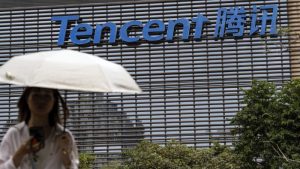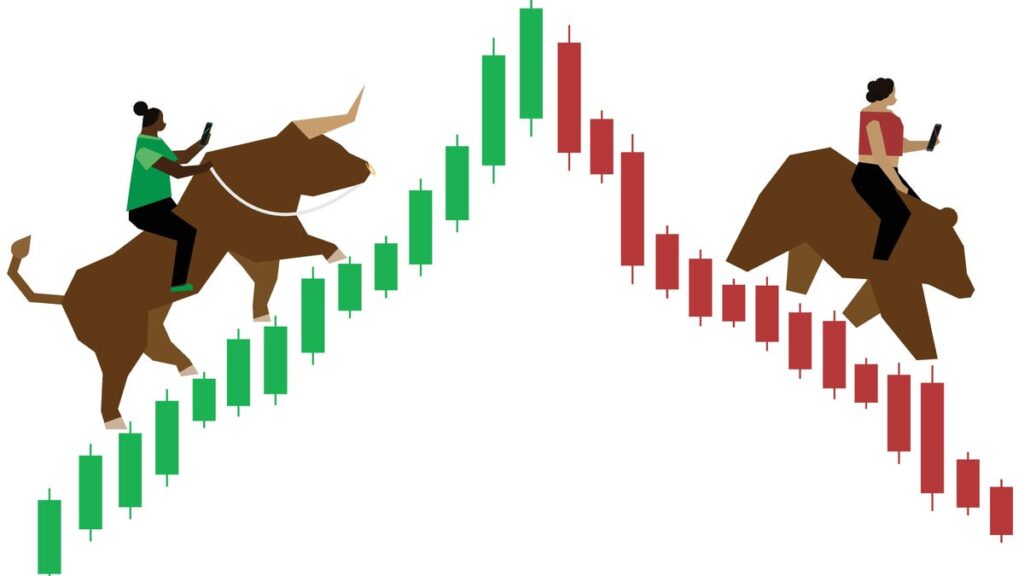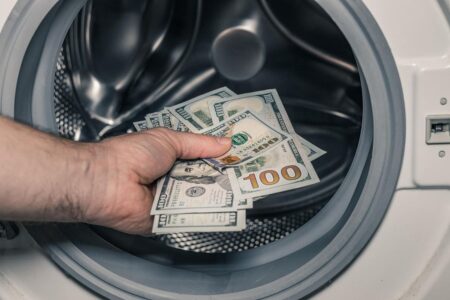“Bullish percent” represents the percentage of stocks in a particular index now trading in bullish point-and-figure chart patterns, that old school price analysis that the MBA’s at the big investment firms can’t stop chuckling over. “Oh no, not technical analysis again! Are the tarot cards next? Please!”
Fine, let them keep poring over their boring balance sheets and only somewhat believable income statements and then ignoring all of that when it’s clear they missed out on the huge move up in 7 tech stocks.
It’s funny to see all of that business school learning fly out the window when their methods underperform the NASDAQ-100 by 20 or 30%.
Stock Market Is Topping Factors:
This daily chart shows the percentage of those stocks in the NASDAQ-100 presently in bullish point-and-figure chart patterns.
Here’s the problem: even though the index itself is hitting new all time highs, the number of stocks in bullish patterns is fewer than at the February peak and fewer than at the December, 2022 peak. This negative divergence indicates underlying weakness in the NASDAQ-100.
This chart show the percentage of stocks in the Standard and Poor’s 500 now in point-and-figure bullish patterns:
As the S&P 500 index itself moves up into new all-time high territory, the percentage of stocks within can’t make a new high. It’s lower here than it was in early February and in early December, 2022. This is another case of underlying strength waning steadily.
Here’s the daily chart for the volatility index:
It’s making new lows on this 8-month chart. This extraordinary low level represents investor confidence that the stock market is in fine condition and will always remain so. That’s a volatility good vibe, the sort of feeling that some believe develops around the time of market tops.
And one more thing:
Nvidia is now trading on the NASDAQ like a Blinder & Robinson penny stock from the 80s, all on the apparent basis of “AI is the next big thing and Nvidia
NVDA
Up 250% from its October lows (7 months ago!), the NASDAQ-100’s favorite component trades with a price-earnings ratio of 223, a price-sales ratio of 40 and at 43 times its book value. The Shiller p/e for the S&P 500 sits at 30.
Here’s the daily price chart:
The red-circled gap area represents the point at which traders lost their minds. This is the bubbliest of the bubble madness now going on in the tech sector, not necessarily signaling any kind of exact top, but we’re closing in on one with this “can’t remove my finger from the buy button” behavior.
Add up all of the above and you’ve got a market top or topping.
Read the full article here













